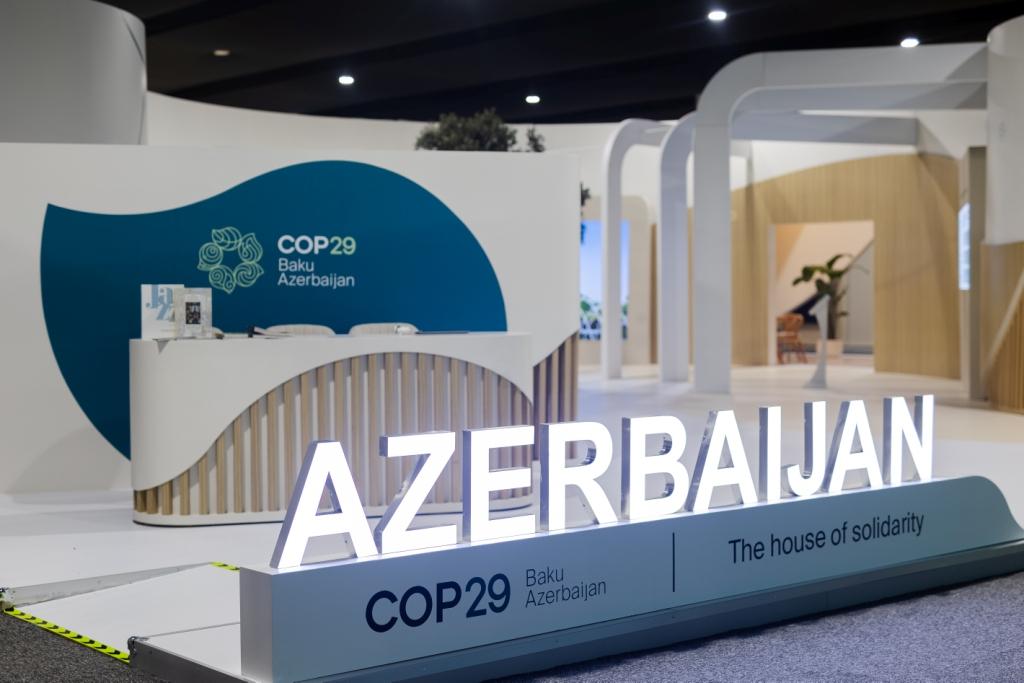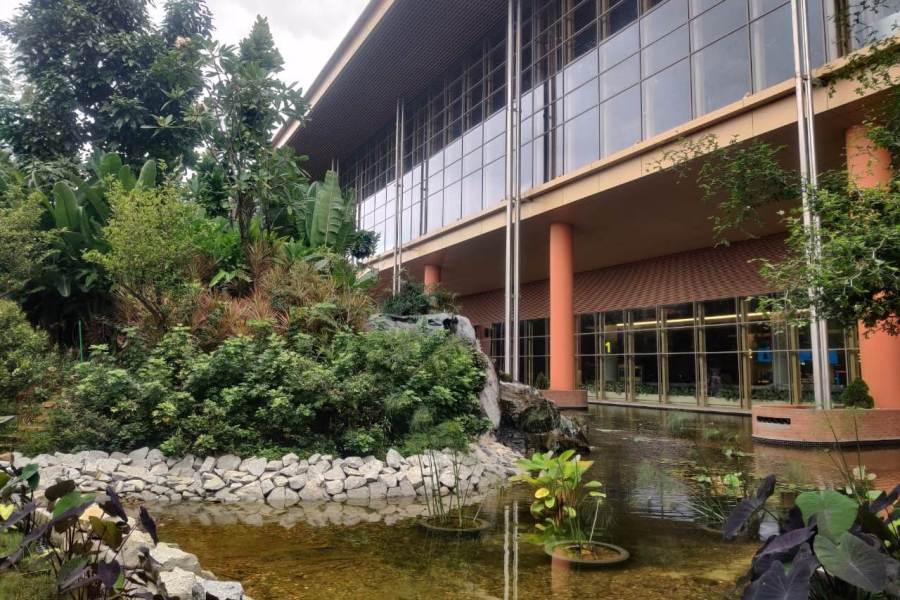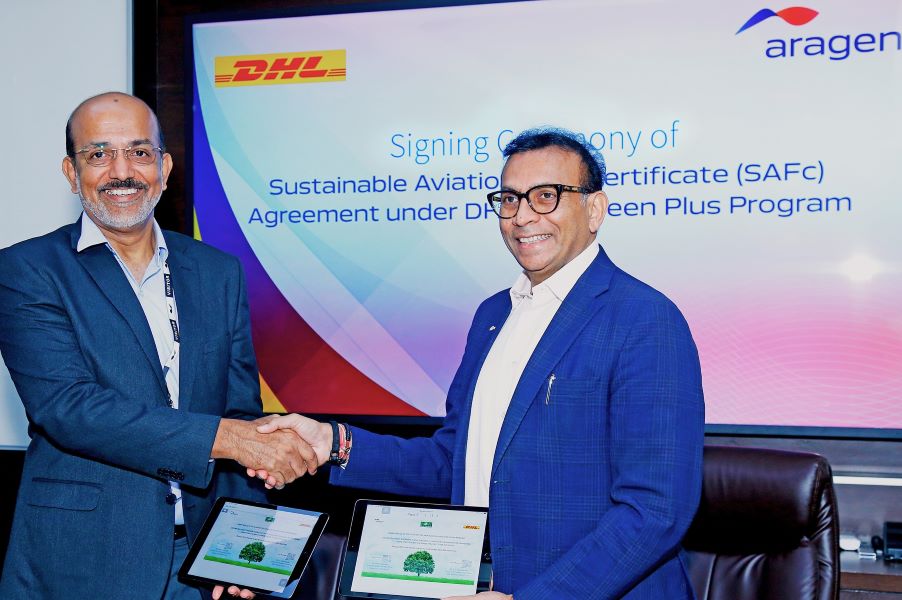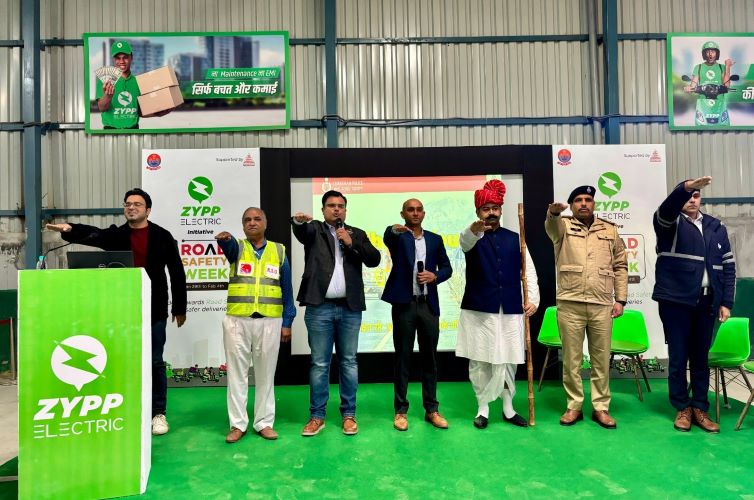On the second day of COP29 in Baku, Azerbaijan, the Green Zone buzzed with a hopeful energy as leaders, experts and young visionaries gathered for a series of public events aimed at tackling the climate crisis. While official negotiations took place in the nearby Blue Zone, the Green Zone was a melting pot of ideas and inspiration, highlighting the crucial role that everyone, from CEOs to young activists, plays in shaping a sustainable future.
One of the day’s main attractions was a panel discussion called “Corporate Sustainability and Climate Action”. A diverse group of leaders sat on stage, each with their own story of how they were driving change from within some of the world’s biggest organizations.
Samir Mammadov, a representative from the United Nations Global Compact, talked about his mission to get companies worldwide to adopt sustainability as more than just a buzzword. “Corporate responsibility doesn’t end with profit,” he said. “It must include planet and people, too.”
This sentiment was echoed by Taleh Tahirli, Chief Transformation Officer at Azerbaijan International Bank, who revealed his organization’s ambitious plans to cut down carbon emissions and encourage sustainable practices across their operations.
Next up was Kaushik Burman, CEO of Spiro, a renewable energy company, who shared stories of powering remote villages with clean energy. “We have the technology. We just need the will and partnerships to make this change a reality,” Burman stated, his words resonating with the young faces in the crowd. Among them was Leila, a 17-year-old climate activist who had traveled from a small town in Azerbaijan to witness this moment. Leila had already started a campaign back home to plant trees and reduce plastic use, and the sight of industry leaders making bold commitments stirred her heart.
In the audience, local climate advocates mingled with global experts and business leaders. They attended workshops on everything from creating sustainable supply chains to integrating green technology. For Leila, the highlight was a workshop on youth leadership in biodiversity. She joined hands with other young activists from around the world to discuss projects they could collaborate on. Inspired by Leila’s story, Maria Peres, a Brazilian partner at GreenSpace Tech Hub, offered to connect the young leaders with resources to amplify their voices.
The Green Zone was also buzzing with discussions on topics close to Leila's heart, such as the role of young women in fighting climate injustice. Listening to local leaders speak about empowering vulnerable communities, she felt a surge of pride. The day ended with a moving session on building synergies between climate and nature, where experts stressed the importance of respecting biodiversity in every climate action plan.
In an interview to ESG Dive, Narmin Jarchalova, chief operating officer for COP29 and chair of the COP29 Azerbaijan Operating Company who has previously served as a project manager for Azerbaijan’s pavilion at COP28, was quoted saying, “Every operational decision we have taken has been shaped by seven key principles: Carbon neutrality, accessibility, legacy and continuity, inclusivity, transparency and accountability, safety for all, and the promotion of sustainable practices.”
“Drawing from this assessment’s findings, one area we focused on for COP29 was energy consumption: Prioritizing the sourcing of renewable energy for the conference and expanding transport options, including incorporating electric buses and micro-mobility lanes to reduce the overall carbon footprint of the conference,” she said.
During COP28 last year, over 400 large companies, investors and institutions from 64 different had pledged to align their climate reporting with the International Sustainability Standards Board (ISSB) Standards. Among these were giants like Unilever, Ericssonand the IKEA Foundation. Their goal was to make corporate climate reporting more consistent and transparent by adopting the ISSB's Climate Standards (S2) as a universal benchmark. This standard requires companies to disclose information on climate-related risks and opportunities, including greenhouse gas emissions, climate-related targets, and transition plans.
The ISSB's General Requirements Standard (S1) outlines general principles for sustainability reporting, such as materiality, completeness, and consistency. By providing a global baseline for sustainability reporting, the ISSB aims to improve investor decision-making, enhance corporate accountability, reduce reporting burden, and increase market confidence.
This collective pledge to the ISSB Standards was expected to set off a domino effect: companies linked with these organizations or to their partners will likely face increasing pressure to adopt similar practices. As a result, one could foresee a growing number of businesses worldwide adopting standardized reporting methods.
What are the ISSB Standards?
The ISSB Standards are a set of sustainability reporting standards developed by the International Sustainability Standards Board(ISSB), aiming to create a comprehensive global baseline of corporate sustainability reporting. There are currently two standards published- General requirements (S1) and Climate (S2). More standards covering additional themes and industries are expected to be issued in the future.














.jpg)


